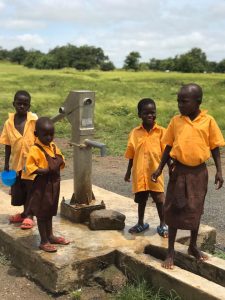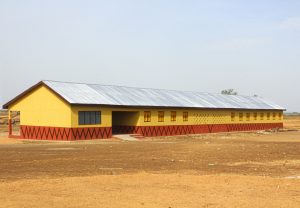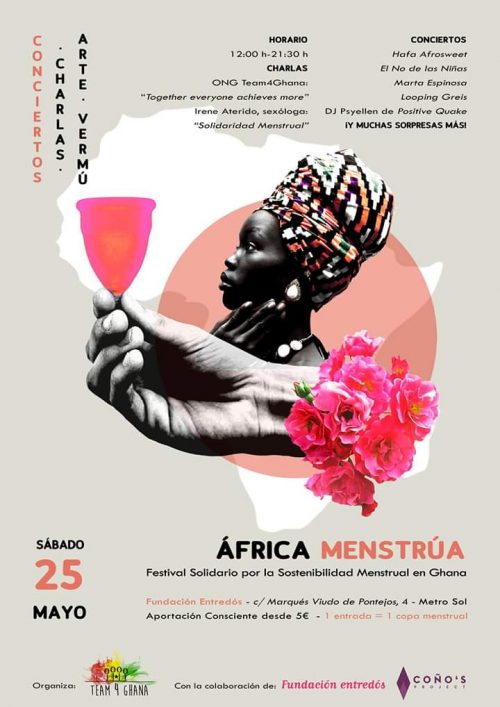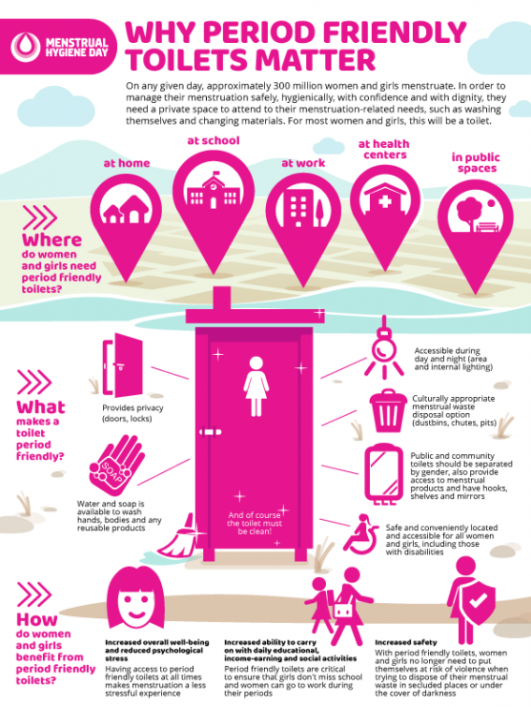Concurrently to the first stage of the construction of the Elementary School in Luisa and as a way to continue with our work in the Builsa region, we planned the construction of some restrooms for the Luisa community, following the suggestions made by an investigation project carried out by the University of Cooperation and Development from Wa.
 At first the restrooms were planned to be constructed next to the Elementary School since the community didn’t count on any similar service yet, the Ghana Education Service (GES) processed our petition of collaborating in the construction of a public nursery to extend the educative offer as well as the construction of restrooms adjoining both buildings to give service to the nursery, the school and, in fact, the whole community.
At first the restrooms were planned to be constructed next to the Elementary School since the community didn’t count on any similar service yet, the Ghana Education Service (GES) processed our petition of collaborating in the construction of a public nursery to extend the educative offer as well as the construction of restrooms adjoining both buildings to give service to the nursery, the school and, in fact, the whole community.
However, while the school construction process, one of our volunteers that was leading the construction on field had the opportunity to spend time with a great number of women, midwifes among them, who informed her about the problems they faced when talking about access to hygiene products, shortage of places in which clean and change themselves and one of the most immediate consequences: the school absenteeism of lots of girls and teens in the community as soon as the started to have their period because of the lack of places and products to safely change themselves.
 After taking into account the necessities of all parts involved and talking to local entities and NGOs and voting on the TEAM4Ghana annual assembly, in January 2019 in Madrid, we decided out of unanimity to carry on with the restrooms construction but changing the location, from Luisa to Kanjarga and adding some changes in order to make them more functional, specially for women.
After taking into account the necessities of all parts involved and talking to local entities and NGOs and voting on the TEAM4Ghana annual assembly, in January 2019 in Madrid, we decided out of unanimity to carry on with the restrooms construction but changing the location, from Luisa to Kanjarga and adding some changes in order to make them more functional, specially for women.
From that moment on, we developed and designed a new collaboration project with our counterparty there with the goal of reducing menstrual poverty and helping to improve life conditions of girls, teens and women from the community of Kanjarga. We have nicknamed this project as África Menstrúa.
The project relies in two parallel courses of action. On one hand, the construction of Period Friendly Toilets. On the other hand, the supply of reusable feminine hygiene products relying, of course, in the advice and counsel of the medical team of the community -midwifes and maternity nurses- local NGOs and entities with large experience in similar projects.


